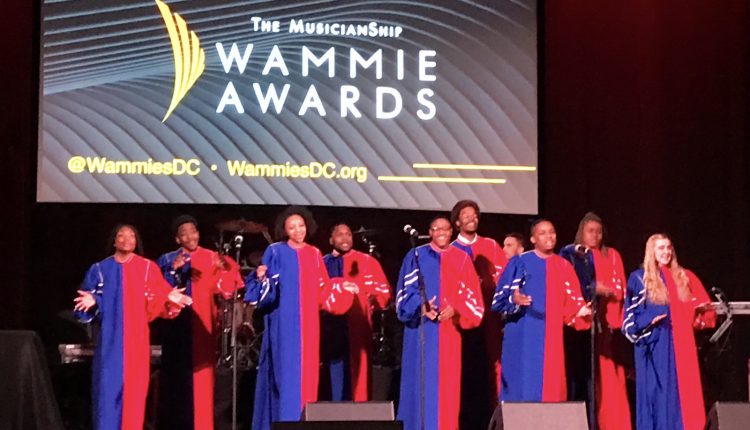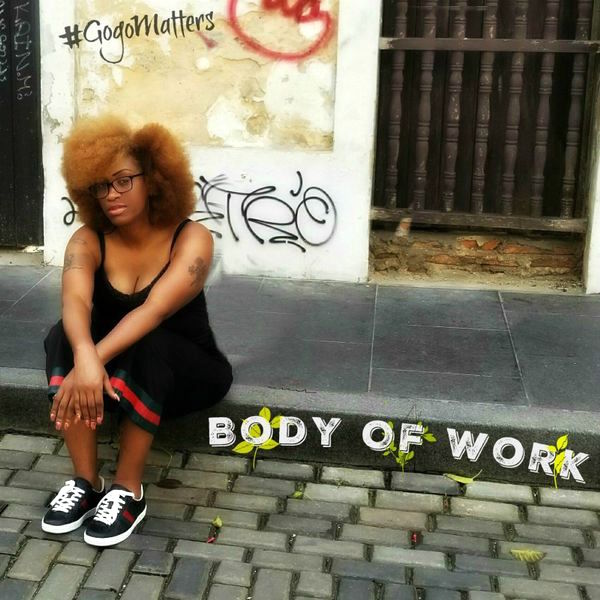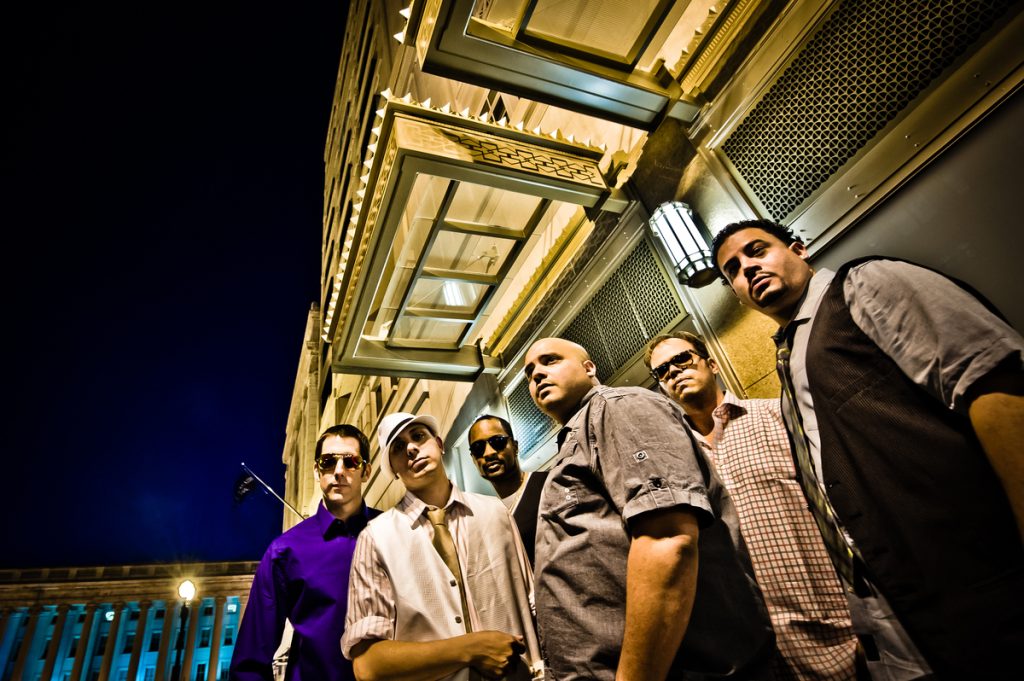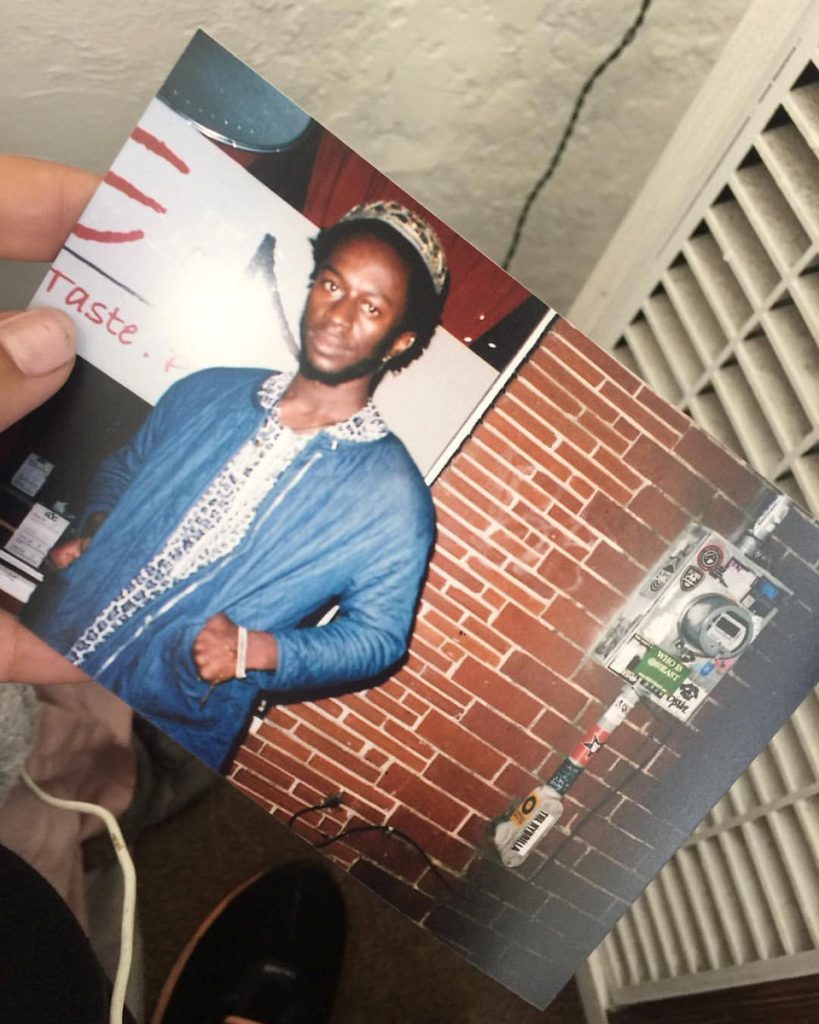
A revived Wammies music awards program tries to help DC musicians — with mixed results
The Wammies, a longtime Washington local music awards program last held in 2016, returned March 31 under new management from The MusicianShip organization. About 400 people filled much of the downstairs portion of the Lincoln Theatre for the three-hour event, the first since the original sponsor disbanded.

The awards ceremony was the second part of a Wammies weekend that also included a Saturday local music industry conference at Decades nightclub, where some awards were also presented. In all, 57 awards were given out over two days, with winners including Michelle Blackwell’s Body of Work for best go-go album; Mackenzie Fisher for best folk artist; Will Eastman for best electronic/techno artist; Empresarios for best Latin artist/group; Hailu Mergia’s Lala Belu for best world music album; Innanet James for best rap artist; Rico Nasty’s Nasty for best rap album; Da Flame for best gospel artist/group; and the Messthetics for best rock group.
The awards ceremony raised more than $5,000 via audience contributions to benefit The MusicianShip’s youth music education efforts. Both the ceremony and the conference featured live music; highlights of the Lincoln Theatre portion included the retro funk of Aztec Sun and the MusicianShip-sponsored Washington Youth Choir Drumline, as well as the choir itself.
The Rev. Sandra Butler Truesdale, accepting a special “do-gooder” award for the DC Legendary Musicians organization that she heads, reminded the crowd that jazz great Duke Ellington used to play in the Lincoln’s once-open basement ballroom and that several DC soul musicians still live near U Street.
A legacy of nomination concerns
Despite the wide musical range of the weekend’s events, for some local music followers the Wammies only covered a portion of the sonic spectrum that the Washington area provides. A number of acclaimed musicians — such as rapper Shy Glizzy, jazz bassist Luke Stewart, and rhythm and blues vocalist Dreamcast — did not appear on the final ballot, which was lengthy but not as comprehensive category-wise as the ones prepared in prior years. Several members of the new Wammies steering committee, when asked about such absences, pledged to try to do better in ensuring that the nominations next year better reflect all of the area’s multiple musical communities.
Such omissions are likely to remind some of the criticism directed at the prior Wammies Awards, although the new group seems determined to not let such impressions take root. From 1984 until its dissolution in 2017, the Washington Area Music Association (WAMA) sought to celebrate and assist DC musicians. As part of that mission, the organization established the annual awards, choosing a name that evoked the Grammys as well as a play on the group’s acronym. Its efforts, however, drew both positive and negative responses. While some hailed the annual trophy-giving for its attempts to honor a wide variety of local acts, others pointed to ballot-stuffing scandals and critically acclaimed acts that WAMA consistently ignored.
A revamped program
The MusicianShip is a nonprofit organization founded by Jeffery Tribble Jr. with a team of others in 2009 to facilitate music lessons for at-risk children. Tribble, who was raised on Chicago’s South Side and now lives in DC’s Ward 8, came to the District in 2004 to attend Howard University as a percussionist on a music scholarship. He stuck around and subsequently got his law degree at The George Washington University. It was in Tribble’s second year of law school that he and others started The MusicianShip, which he says now serves 1,200 young people through after-school and summer programs in DC, as well as another 400 in South Africa and France.
Just prior to disbanding, WAMA donated $3,000 to The MusicianShip, he says. At the time, John Simson — one of WAMA’s founders who also sat on The MusicianShip’s board — “shared some of their challenges” in a conversation with Tribble. “I said, ‘We want to help save the Wammies,’” Tribble recounted. “He talked to their board, and they agreed to transfer their rights.”
Tribble and The MusicianShip have made some changes to the Wammies since acquiring the rights. Reflecting the group’s mission to help educate local musicians, the program now includes the new Saturday daytime conference with stakeholders in the local music community. This year’s panelists included Nico Hobson, host of an online go-go radio show; Alisha Edmondson of the club Songbyrd; John D. Mason of Washington Lawyers for the Arts; Aaron Myers, an arts advocate and musician; and Ruthie Logsdon of country/Americana group Ruthie & the Wranglers.
The Musicianship eliminated several awards categories, including those honoring instrumentalists in each genre. Meanwhile, it added others — some of which reflect nuances The Musicianship sees in musical genres. There are now separate awards for hip-hop (seen as more storytelling and musical) and rap (more minimalist); likewise, the former “urban contemporary” category was split into R&B and soul, with the latter being more retro and traditional.
Another change involved eligibility, requiring that nominees have released music in the prior year on at least two streaming or download services such as Spotify, Amazon, Tidal, iTunes, Google Play, Deezer, SoundCloud and Bandcamp.
A new process
Tribble notes that WAMA was a membership organization that required musicians to become paying members in order to vote for the awards — an obstacle that limited its scope by preventing participation by musicians unable or unwilling to pay. “One thing we wanted to do was dismantle that model because it had become really homogenous,” Tribble said. “In order to make it more diverse and younger and to contemporize it and urbanize it, we dismantled the membership model. We wanted to give the greater DC area community a better chance to nominate the musicians that they want to nominate.”

The new Wammies organization posted on social media that the public (including musicians themselves) had the month of January to nominate artists based on music released in 2018. The group then counted the votes and settled on a final ballot that a team of 50-some judges used to select the winners.
The new Wammies final nominees’ ballot still ended up having some issues. Rock band Flasher’s Constant Image effort was nominated for and won best rock album, yet the band was not even nominated in the best rock artist/group category. Some categories included the top seven vote-getters on the ballot, while others had just four or even two acts and the a cappella category listed only Pitches Be Crazy (PBC) Vocal Band. Tribble says the group ended up dropping a classical category due to insufficient nominations.
Although people were limited to one vote each for a particular nomination in each category, some groups’ fans nominated their fave artist in multiple categories. Allowing the public to largely formulate the ballot (aside from some nominations submitted by Wammies-associated personnel) led to some discrepancies: Classified Frequency, which encouraged voting by its fans on social media, was nominated across six categories — best rock artist/group, best rock album, best hard rock artist/group, best hard rock album, best pop artist and best pop album. Meanwhile, other notable DC artists weren’t on the final ballot reviewed by the judges and posted on the Wammies website.
While The MusicianShip sought out people involved with the music scene to serve as judges voting on the final ballot, the group wasn’t as aggressive in seeking their participation in the earlier nomination process. Outreach efforts might have helped, as Tribble noted that The MusicianShip’s own surveys showed that many artists and members of the public don’t know about the Wammies.
Thus, the names of deserving acts not on the final ballot are obvious to engaged local music fans. Tribble says he is a fan of April + VISTA, whose 2018 You Are Here effort received national attention, but the R&B group didn’t make it onto the list given to the judges. A number of popular or critical favorite rappers on The Washington Post’s best 2018 DC area rap list were missing as well — including Sir E.U, who was also highlighted in the Washington City Paper’s year-end article on local music in 2018, and Rapper Q Da Fool, whose 100 Keys release was produced by widely heralded Atlanta producer Zaytoven.
Acclaimed acts in other genres also didn’t get the votes to be nominated. Gospel artists Anthony Brown & Group Therapy and Spencer Taylor & the Highway QC’s, pop-rockers Bad Moves and Palestinian oudist/singer Huda Asfour have all received coverage from music critics, but neither they nor their releases made the final list. The ballot included smooth jazz artist Kayla Waters in three categories, but it had no mention of any of the albums by artists on the Capitol Bop website’s list of 2018 top straight-ahead jazz artists like Sarah Marie Hughes, Kriss Funn, and Blacks’ Myths (Luke Stewart and Trae Crudup).
Some fans and individuals involved in the Wammies have asserted that it was the responsibility of local musicians to be aware of the new nomination process and to nominate themselves. Tribble acknowledged, however, that busy musicians might not have perused the media sites where the new Wammies were advertised — and that others, mindful of the problems of the old Wammies, might have been wary of the new organization.
Challenges of inclusion and philosophy
As varied as the lineup of speakers at the daytime conference was, it nonetheless lacked representatives from a number of respected local DC independent music labels, such as Sister Polygon, Future Times, Atlantic Rhythms and Blight. Also notably absent were supporters of non-English local sounds, such as Latino events website Kesta DC and promoter Jim Thomson of Multiflora Productions.

The new eligibility rules also proved contentious. Tribble sees the new requirement for a prior-year recording on two of the designated online platforms as a good thing that challenges DC artists to create art that is permanent and available. But DC rapper Sir E.U called the new ballot rule “classist,” noting that many rappers post their music just on SoundCloud (which counts) and on YouTube (which doesn’t). In criticizing the decision not to include YouTube, he pointed to the popularity of uploads there by national artists like NBA Youngboy, fans of whom have tweeted their appreciation that he makes “music for people too broke to get Apple Music/Spotify.”
Other rappers didn’t qualify because they use just one platform, whether it’s Bandcamp, which was on the Wammies list, or Spinrilla, a free independent rap website that wasn’t. Likewise, local go-go bands often make downloads available on their own websites or dedicated go-go websites like PA Palace rather than using the larger, more commercially oriented sites that encourage payments for music.
Some members of the local music community have more fundamental problems with the Wammies. Sir E.U has tweeted and voiced his dislike of ranking artists, while April + VISTA manager James Scott said via email that the funding provided by the DC government and private sources to produce the Wammies could be put to better use. “We don’t believe in this program and believe resources could/should be spent on other tactics to empower the community,” Scott said.
Tribble is determined, though, to make the Wammies a useful endeavor. “Part of our goal is to let all these little niches know, so it is equitably represented across genres, ethnicities and ages, which is not a small feat,” he said prior to this year’s events. “We know we have a lot of work to do. We know we’re imperfect, as was the old regime. This year is not gonna be perfect, and we’re gonna get some pushback. … We’re doing our best to uphold what has been historically positive about this — to honor and celebrate DC musicians.”
Looking forward, he concluded: “The more feedback we get, the more we can refine it and perfect it and enrich the experience for anyone who is involved with it.”


Comments are closed.